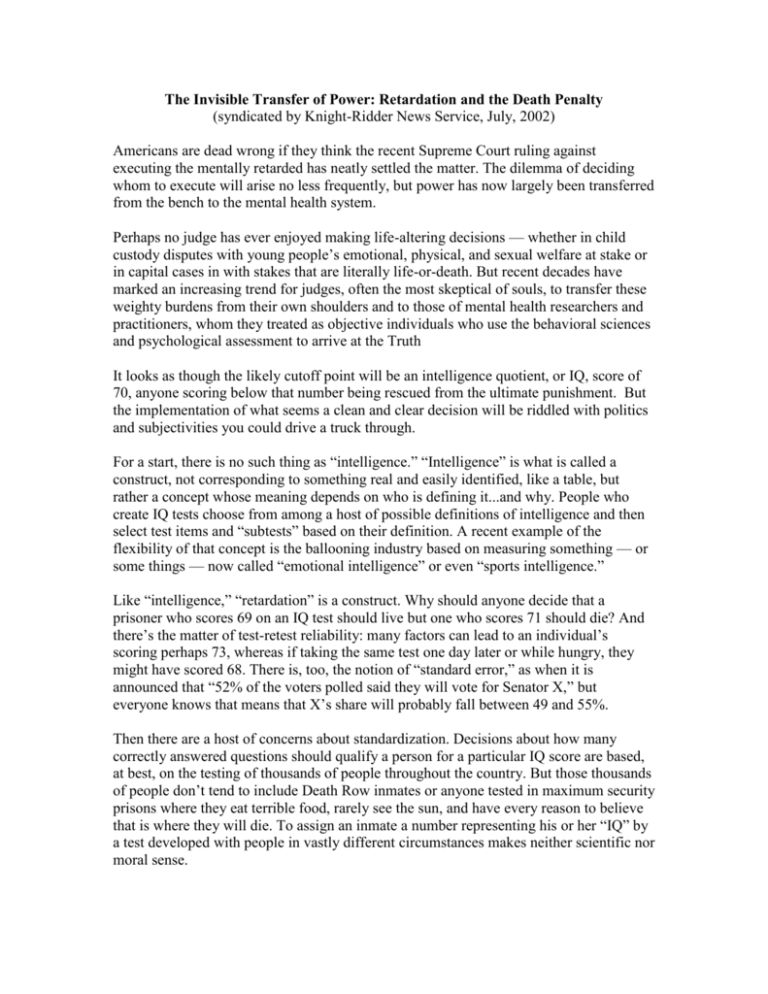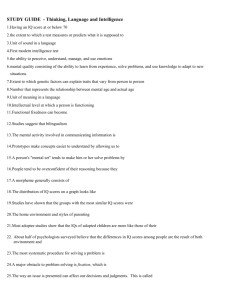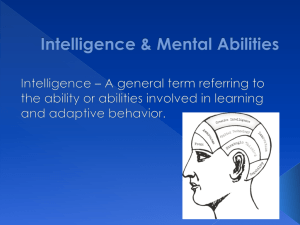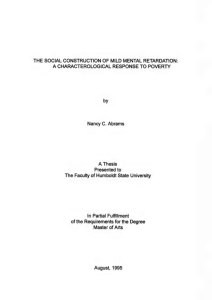Retardation and the Death Penalty
advertisement

The Invisible Transfer of Power: Retardation and the Death Penalty (syndicated by Knight-Ridder News Service, July, 2002) Americans are dead wrong if they think the recent Supreme Court ruling against executing the mentally retarded has neatly settled the matter. The dilemma of deciding whom to execute will arise no less frequently, but power has now largely been transferred from the bench to the mental health system. Perhaps no judge has ever enjoyed making life-altering decisions — whether in child custody disputes with young people’s emotional, physical, and sexual welfare at stake or in capital cases in with stakes that are literally life-or-death. But recent decades have marked an increasing trend for judges, often the most skeptical of souls, to transfer these weighty burdens from their own shoulders and to those of mental health researchers and practitioners, whom they treated as objective individuals who use the behavioral sciences and psychological assessment to arrive at the Truth It looks as though the likely cutoff point will be an intelligence quotient, or IQ, score of 70, anyone scoring below that number being rescued from the ultimate punishment. But the implementation of what seems a clean and clear decision will be riddled with politics and subjectivities you could drive a truck through. For a start, there is no such thing as “intelligence.” “Intelligence” is what is called a construct, not corresponding to something real and easily identified, like a table, but rather a concept whose meaning depends on who is defining it...and why. People who create IQ tests choose from among a host of possible definitions of intelligence and then select test items and “subtests” based on their definition. A recent example of the flexibility of that concept is the ballooning industry based on measuring something — or some things — now called “emotional intelligence” or even “sports intelligence.” Like “intelligence,” “retardation” is a construct. Why should anyone decide that a prisoner who scores 69 on an IQ test should live but one who scores 71 should die? And there’s the matter of test-retest reliability: many factors can lead to an individual’s scoring perhaps 73, whereas if taking the same test one day later or while hungry, they might have scored 68. There is, too, the notion of “standard error,” as when it is announced that “52% of the voters polled said they will vote for Senator X,” but everyone knows that means that X’s share will probably fall between 49 and 55%. Then there are a host of concerns about standardization. Decisions about how many correctly answered questions should qualify a person for a particular IQ score are based, at best, on the testing of thousands of people throughout the country. But those thousands of people don’t tend to include Death Row inmates or anyone tested in maximum security prisons where they eat terrible food, rarely see the sun, and have every reason to believe that is where they will die. To assign an inmate a number representing his or her “IQ” by a test developed with people in vastly different circumstances makes neither scientific nor moral sense. Instruction booklets include exhortations to administer tests using prescribed words in a standardized way, but nothing can control a psychologist’s tone of voice, facial expressions, or degree of tension, all of which can enhance or impede the prisoner’s performance. The scoring booklet tells you which answers warrant 2 points, which only 1, and which 0; but almost every time one gives an IQ test, one has to make judgment calls, because a response doesn’t fall clearly into any point-category. Psychologists who favor the death penalty can conceivably be so warm, supportive, and patient when administering the test and so generous in their scoring that the prisoners’ scores will be overestimates of how they have functioned in their pre-prison days, when few of those who end up on Death Row had such people in their lives. People opposed to the death penalty might consider this a great opportunity to make prisoners uncomfortable to ensure that they score below 70. But psychologists have to worry about upholding ethical standards, and score sheets and reports are supposed to be audited. Psychologists whose reports always read, “The prisoner’s IQ is below 70” won’t keep their jobs for long and would probably lose their licenses. Examiners opposed to the death penalty will have to decide how often to make sure their examinees’ scores fall below the magic number, and if they can’t risk reporting every prisoner as retarded, they will have to choose whom their reports will sentence to life and whom to death. Now they will be the judges. Despite the best intentions, no psychologist testing a person on Death Row can be sure to keep every conscious or unconscious feeling they have about their power and about the death penalty from affecting this work. Some consider it unfair to execute those who can’t tell right from wrong. But it’s not always easy to assess whether even well-educated people know that difference, and the imprecision of language makes it harder. In America, the accused have to be able to participate in their own defense, for example, recalling details that they realize could help prove their innocence. But granting one professional category of subjective beings with deeply flawed methods the power to draw a line between 69 and 70 will not give us a clean way to choose our executed if we insist on killing at least some of the prisoners some of the time. Paula J. Caplan, Ph.D., a clinical and research psyhologist and testing supervisor and author of nine books, is an Adjunct Professor at Brown University.











